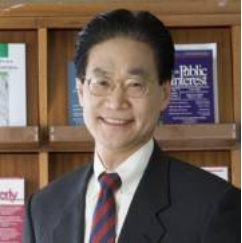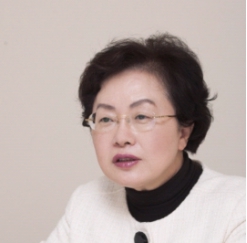座谈时间:2017年7月6日星期四 上午9:00——12:00
座谈地点:公共政策与管理学院实验中心研讨室
座谈主题:Civilization and the Indigenization of Public Policy & Administration as an Academic Discipline
座谈嘉宾:Jung & Paik
座谈对象:西安交通大学公共政策与管理学院青年教师
座谈嘉宾简介:

郑用德(Yong Duck Jung)博士,韩国社会科学协会会长,首尔大学行政大学院教授。曾任汉城大学董事会董事,韩国公共行政学会主席,日本政治学研究会执行委员等学术机构成员。郑教授的教学和研究课题包括公共行政理论和哲学,比较国家机构和政策能力,治理和公共领导,他担任多个学术期刊编委,也为多个公共组织做政策咨询。郑教授撰写和主编了一系列专著,如现代国家公共行政,韩国和日本的国家机器,美国和韩国的共同治理等。

朴喜映(Hee Young Paik)博士,韩国妇女科技协会联合会(KOFWST)韩国创意研究中心主任,首尔国立大学名誉教授。朴博士从美国马萨诸塞州波士顿的哈佛公共卫生学院获得营养科学博士学位。获得博士学位后,她曾在Sookmyung妇女大学担任教职,然后在韩国首尔国立大学工作至2016年2月。她曾在各种组织工作,其中包括担任2013年韩国家庭经济协会主席,2015年韩国营养协会主席,以及2014-2016年韩国妇女科技协会联合会主席。2002年至2005年间,她担任韩国DRI委员会的主席,新制定韩国饮食参考摄入量标准。2005年至2009年,任IUNS理事会成员,获得“科学优秀研究奖”(2005),“国家科学高科技荣誉”(2008年),“亚太临床营养奖”(2009年),“蓝色”丝带国家公共服务奖章(2012)。2009-2011年朴教授担任了大韩民国两性平等与家庭部部长。
座谈内容简介:
In this communication with young faculties from SPPA, we would like to discuss about another big question: the issue of the indigenization of PPA as an academic discipline. First, we will present our opinion on the subject, including why and how to indigenize PPA, taking some examples of the Korean case.
Modern theories of PPA began to be introduced and taught at the Korean universities in the late 1940s. It was very late as compared to the European universities, which began to study and teach ‘Kameralismus’ or ‘Polizeiwissenschaft’ as early as 16th C. It was not so much late, however, as compared to the USA where it began in the late 19th C. Since then, PPA has grown rapidly in terms of intellectual human resources and institutions in the field. Regardless of the growth of its intellectual institutions and human resources, the Korean PPA has been challenged in terms of relevancy, and ‘science-ness’. And the challenges have been raised mainly in relations to the issue of ‘too much reliance’ on American PPA theories in Korea. In fact, from the beginning in the late 1940s, Korean PPA scholars have mainly adopted American PPA theories. Relying on the American theories and research methods has been making Korean PPA scholars to analyze effectively the Korean PPA institutions and practices which are similar to those of the USA. On the other hand, it has been keeping Korean PPA scholars from focusing directly on the essence or core characteristics and problems of Korean PPA practices and institutions. This has been making mostly Korean PPA scholars’ descriptive and prescriptive works ‘irrelevant or marginal’ to the important core PPA phenomena in Korea. Korean PPA scholars also have tried to apply the American PPA theories or institutions as normative standards of pluralistic and decentralized state administration to evaluate and reform Korean PPA practices. Without appropriate descriptions and explanations, however, most of the reform proposals or efforts have not been effectively institutionalized, resulted in lots of formalism in Korean PPA. It is in the context that the Korean PPA scholars have been debating the pros and cons of the so-called ‘indigenization’ or ‘Koreanization’ of PPA since the late 1960s.
We will approach to this issue by reviewing the history of transformations of civilizations, especially focusing on the cases of different civilizations encountered. Our presentations will be followed by open discussions with young faculty members at the SPPA.